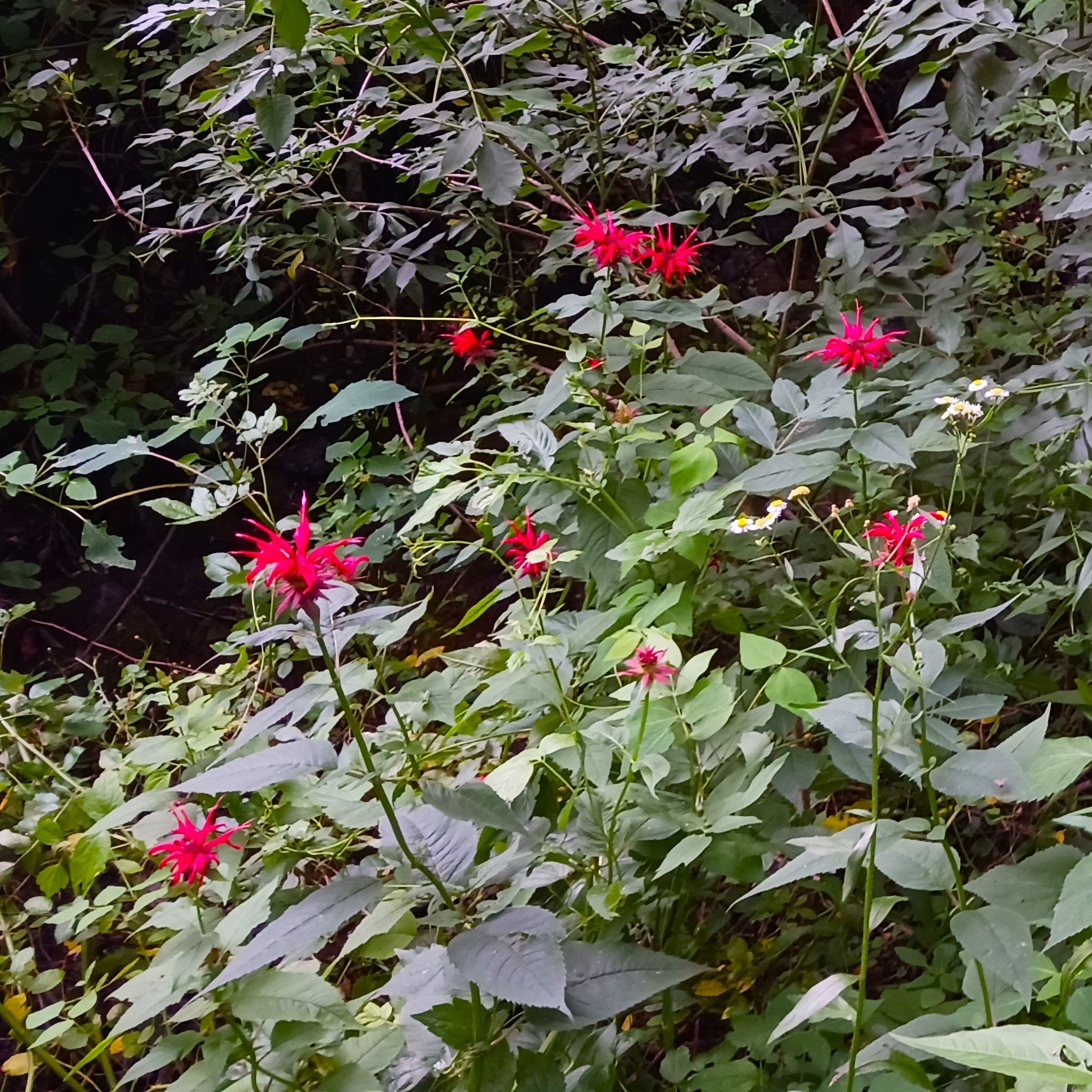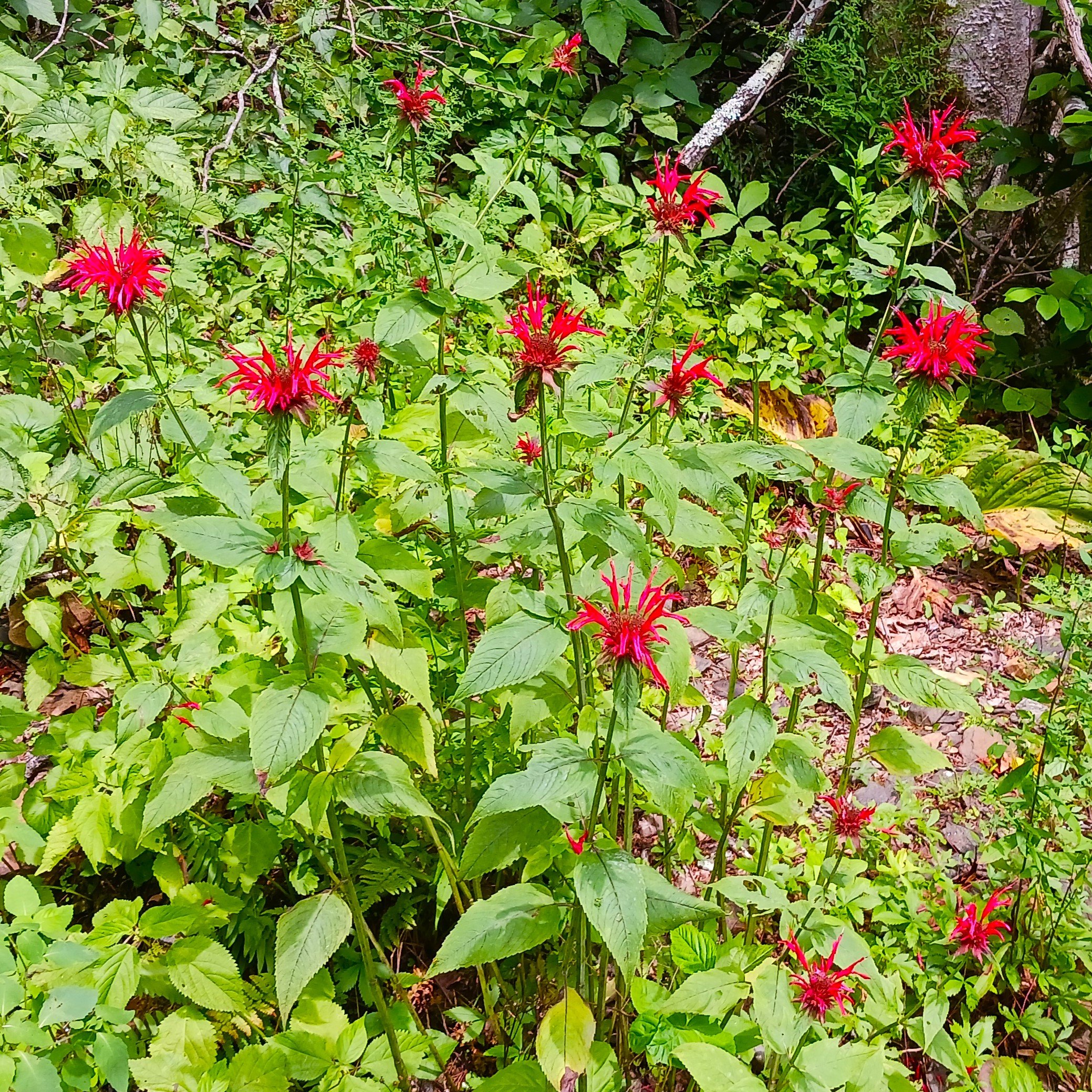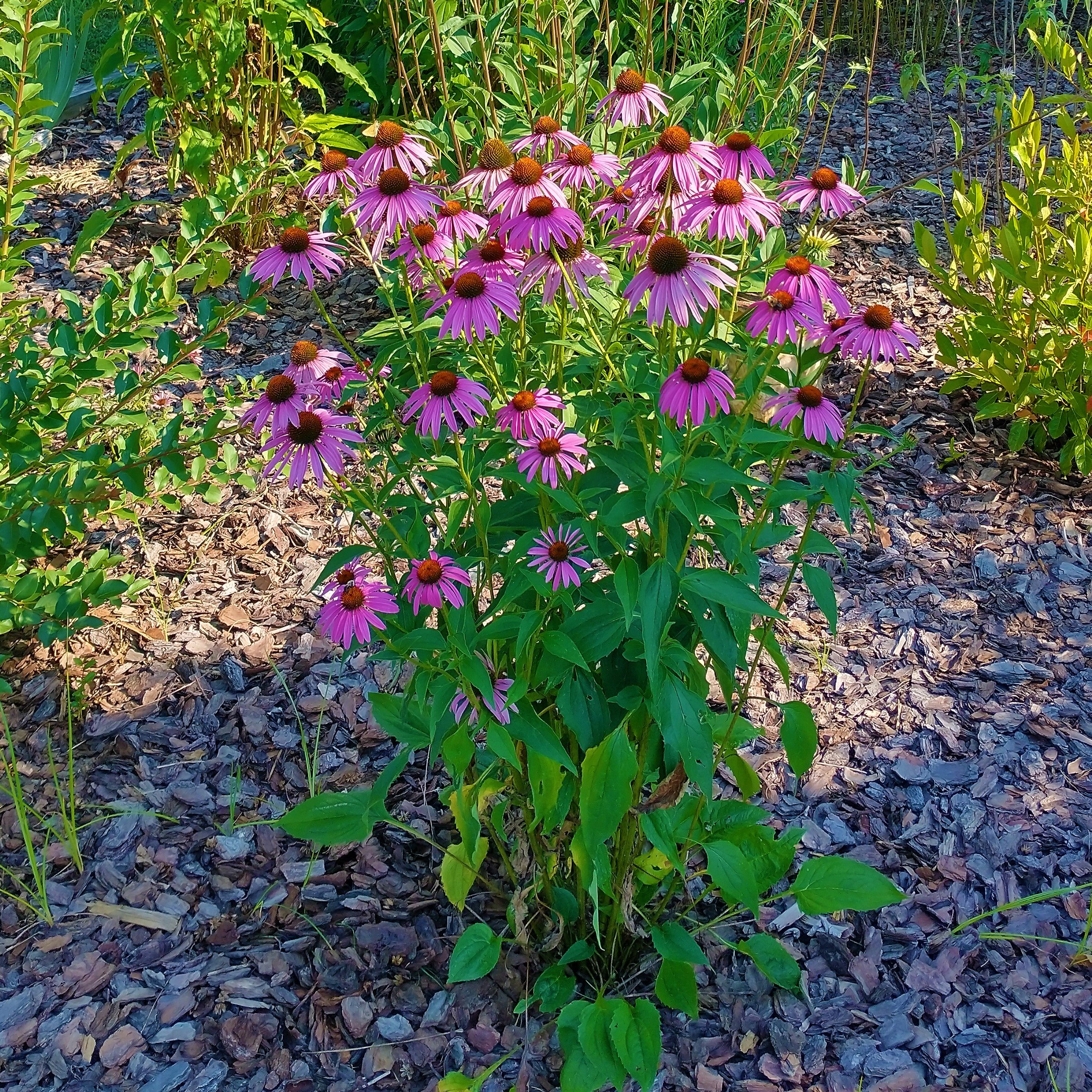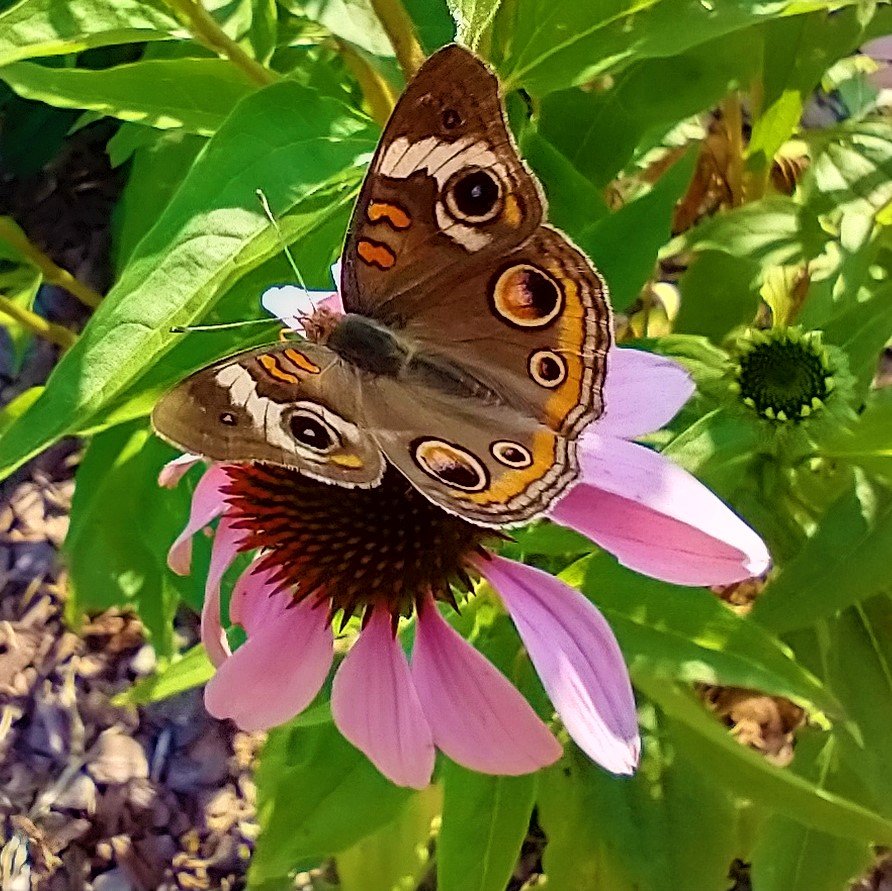Monarda fistulosa (Wild Bergamot) - NC Ecotype
Monarda fistulosa is an allstar native perennial for a variety of landscapes. It is colorful, hardy, and highly beneficial for wildlife. In addition to many ecological virtues, its long-lasting lavender blooms attract a range of pollinators mid-summer into fall.
Monarda fistulosa is an allstar native perennial for a variety of landscapes. It is colorful, hardy, and highly beneficial for wildlife. In addition to many ecological virtues, its long-lasting lavender blooms attract a range of pollinators mid-summer into fall.
Monarda fistulosa is an allstar native perennial for a variety of landscapes. It is colorful, hardy, and highly beneficial for wildlife. In addition to many ecological virtues, its long-lasting lavender blooms attract a range of pollinators mid-summer into fall.
NC Ecotype! Monarda fistulosa should be on every native plant recommendation list. It’s very adaptable, very showy, and is vital for every garden ecosystem. Unlike its cousins, Wild Bergamot has lavender colored flowers with less variability - usually between pink and purple. Flowers bloom June-September favoring mid-late summer and can be trimmed back to continue blooming, this species can reach up to 4’ in height on leafy stalks of square stems. The leaves are fragrant, resembling oregano and tend to repel most mammalian herbivores like deer and rabbits. Wild Bergamot can spread slowly over time and form a patch, but it does not spread quickly and tends to be well behaved. It can tolerate a wide range of soils - clay or sand, moist or dry, and can tolerate both full sun and part shade as long as it receives at least 2 hours of direct sun. Established plants will perform best so it may need a year or two to properly establish, and can be used in rain gardens. This species also tolerates the juglone produced under black walnut trees and can be grown in containers.
Many plants of the Monarda genus exhibit a white discoloration to the leaves beginning in summer caused by powdery mildew. Monarda fistulosa is susceptible to this, although we do not see this as often in our wild plants as in potted plants. Powdery mildew will not kill the plant, and often it will continue flowering even if losing all the leaves. The mildew is caused by a combination of stress, lack of circulation, high temperatures, and humidity. Although sunlight can help prevent mildew, full sun can also increase stress on Monarda plants which lack adequate moisture. We recommend improving circulation by removing dead plant material and ensuring protected plants receive morning light but some shade in afternoon.
Monarda species are one of the keystone perennials for garden ecosystems, providing a host of benefits to a wide range of animal species. As a pollinator plant, the prodigious quantities of nectar and pollen attract both large butterflies and hawkmoths, as well as flower flies and small specialist bees, 3 species in our region only feed on Monarda. The leaves, while less popular with mammalian herbivores, support several of species of moth caterpillars, and the rapid growth keeps up with these demands. The beautiful Raspberry Pyrausta Moth (Pyrausta signatalis) only feeds on Monarda species. Like milkweeds of the Asclepias genus, this is an example of how important these ecological connections can be, and how growing these plants in a home garden can be important for supporting populations of native insects. Predatory insects, spiders, and birds also feed on these insect herbivores, while hummingbirds are attracted to the nectar, and songbirds to the seed.
Pollinators: bumblebees, cuckoo bees, halictid bees, leafcutter and resin bees, long-horned bees, miner bees, honey bees, butterflies, hawkmoths, moths, bee flies, syrphid flies, wasps, long-horned beetles, soldier beetles
Host Plant for Butterflies/Moths: 12+ species of moths in our region, including the Orange Mint Moth (Pyrausta orphisalis). The Raspberry Pyrausta (Pyrausta signatalis) likely only feeds on Monarda species.
Dependent Species: 3 monolectic bee species in our region which only feed on Monarda species - Dufourea monardae, Perdita gerhardi, Protandrena abdominalis; Raspberry Pyrausta (Pyrausta signatalis)
Wildlife Value: Hummingbirds, Songbirds, Thrushes, Wood Warblers, shelter, winter cover, stem-nesting bees
Deer Resistance: Moderate
Native Region: Appalachian Mountains, Piedmont, Coastal Plain
Seed Origin: Montgomery County, NC
Ecoregion: 45 - Piedmont
USDA Zones: 3-9
States found in our region: AL, DE, GA, KY, MD, NC, PA, SC, TN, VA, WV
Other states found: AR, AZ, CO, CT, IA, ID, IL, IN, KS, LA, MA, ME, MI, MN, MO, MS, MT, ND, NE, NH, NJ, NM, NY, OH, OK, RI, SD, TX, UT, VT, WA, WI, WY




































